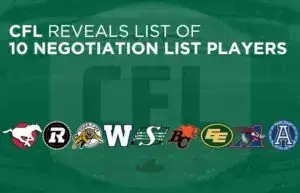In the world of football, negotiations play a crucial role in shaping the success and future of clubs and players. Over the years, the art of negotiation has evolved, with contemporary trends and strategies emerging to navigate the complex landscape of football transfers, contracts, and player acquisitions. In this article, we will explore some of the modern negotiations techniques that have become prevalent in the football industry.
The Rise of Data-Driven Football Negotiations
Gone are the days when negotiations relied solely on gut feelings and intuition. In today’s football, data-driven decision making has become a key component of negotiations. Clubs now utilize advanced analytics and player performance metrics to assess the value and potential of a player. This data-driven approach allows clubs to make more informed decisions and negotiate contracts and transfer fees based on objective criteria.
By analyzing player statistics, such as goals, assists, and pass completion rates, clubs can determine the true worth of a player and negotiate contracts that reflect their performance on the field. Data-driven negotiations have also become essential in evaluating the potential of young talents and predicting their future success, enabling clubs to make strategic investments in promising players.
The Role of Agents in Football Negotiations
Agents have always played a significant role in football negotiations, but their influence has grown even more prominent in recent years. With the increasing complexity of contracts and the globalization of the football market, agents have become indispensable intermediaries between players and clubs.
Modern negotiations often involve multiple parties, including agents, club representatives, and player representatives. Agents leverage their industry knowledge, networks, and negotiation skills to secure the best deals for their clients. They negotiate not only the financial aspects of contracts but also the terms and conditions that protect the players’ interests.
Furthermore, agents are now involved in transfer negotiations, where they act as facilitators between clubs, ensuring smooth and efficient communication. Their role extends beyond mere negotiation, as they provide valuable guidance and support throughout the entire process.

Transparency and Fairness in Negotiations
In recent years, there has been a growing emphasis on transparency and fairness in football negotiations. The football industry has recognized the importance of maintaining integrity and ethical practices in negotiations to foster trust and maintain a level playing field.
Clubs are now expected to disclose all relevant information during negotiations, ensuring that both parties have access to the same data. This transparency helps prevent unfair advantage and promotes fair negotiations. Additionally, football governing bodies have implemented regulations to combat unethical practices, such as tapping up and illegal approaches, further promoting fairness in negotiations.
The Impact of Social Media
Social media has revolutionized the way information is shared and consumed, and it has also had a significant impact on football negotiations. Players, agents, and clubs now use social media platforms to communicate and share updates, creating a new dynamic in negotiations.
Social media provides a platform for players to express their desires, ambitions, and frustrations, often influencing negotiations. Clubs and agents monitor social media channels to gauge public opinion and sentiment, which can impact the negotiation process. Additionally, social media has become a tool for clubs to announce transfers and contract extensions, creating hype and engaging fans.
The Importance of Relationship Building
While data and analytics have become essential in negotiations, the importance of relationship building should not be underestimated. Building strong relationships between clubs, agents, and players can significantly impact the negotiation process.
Establishing trust, open lines of communication, and mutual respect can lead to smoother negotiations and more favorable outcomes. Clubs that have built solid relationships with agents are often given priority in transfer negotiations, as agents trust their professionalism and commitment to fair dealings.
Similarly, players who have strong relationships with their clubs are more likely to negotiate contracts that align with their aspirations and career goals. Building relationships based on trust and respect fosters long-term partnerships that benefit all parties involved.
Conclusion
Modern negotiations in football have evolved to incorporate data-driven decision making, the involvement of agents, transparency, the impact of social media, and the importance of relationship building. These contemporary trends and strategies have reshaped the negotiation landscape, allowing clubs and players to make more informed and fair deals. As the football industry continues to evolve, negotiations will remain a crucial aspect of the game, shaping the future of clubs and players alike. Join Heyagoal for more insights.






